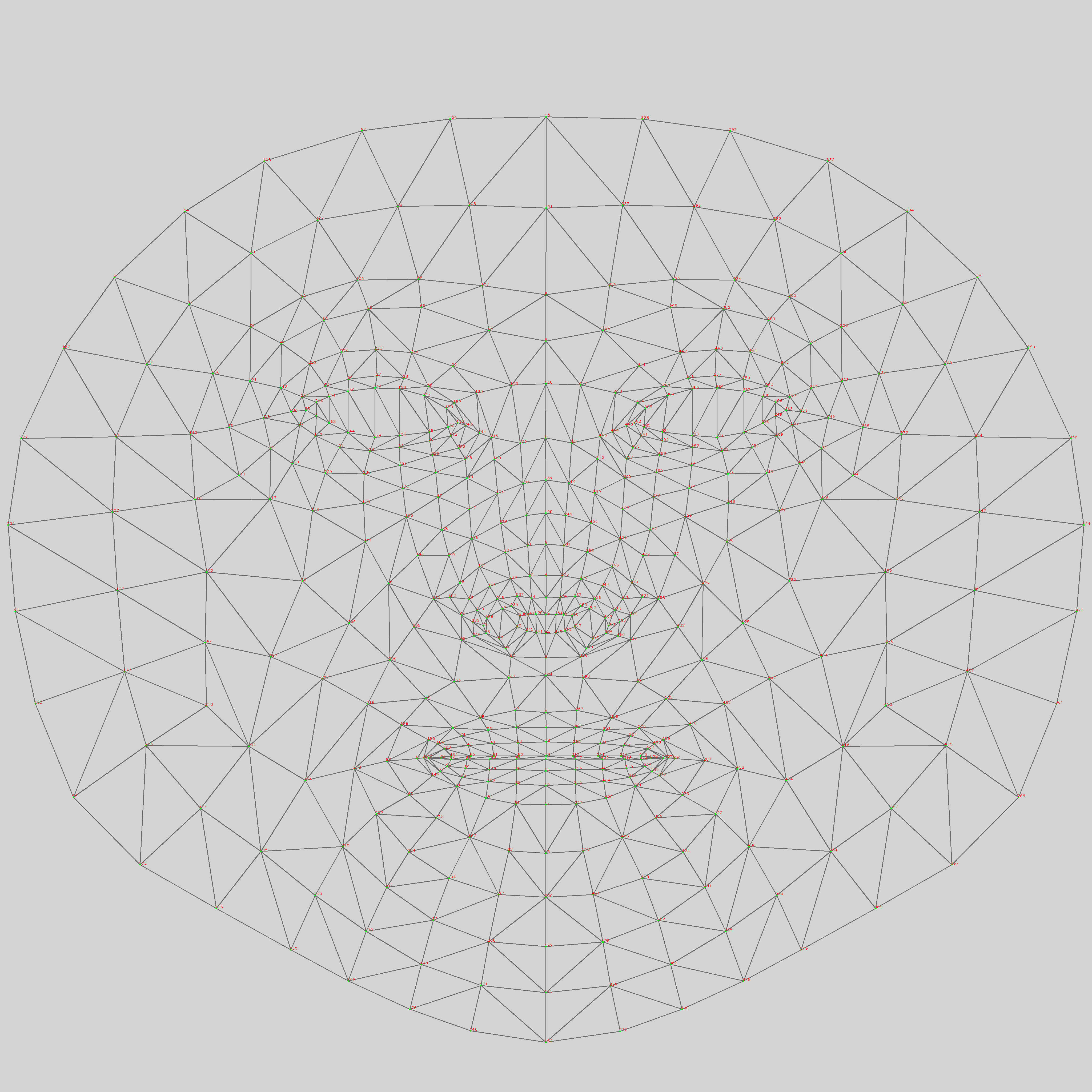Face mesh detection concepts
Stay organized with collections
Save and categorize content based on your preferences.
Face mesh info contains two parts:
468 3D points: Each point has a unique ID, ranging from 0 to 467,
associated with a fixed position on the detected face. For each point:
- x and y are pixel coordinates of the detected face.
- z is the depth info scaled to image size, such that z-values are more
negative when the face is closer to the camera. The origin is the average
depth of all 468 points.
Triangle info: This is used to represent a logical triangle surface in the
detected face. Each triangle contains three 3D points. For example, Points
#0, #37, and #164 construct a small triangle area between the nose and
lips.

Except as otherwise noted, the content of this page is licensed under the Creative Commons Attribution 4.0 License, and code samples are licensed under the Apache 2.0 License. For details, see the Google Developers Site Policies. Java is a registered trademark of Oracle and/or its affiliates.
Last updated 2025-02-28 UTC.
[[["Easy to understand","easyToUnderstand","thumb-up"],["Solved my problem","solvedMyProblem","thumb-up"],["Other","otherUp","thumb-up"]],[["Missing the information I need","missingTheInformationINeed","thumb-down"],["Too complicated / too many steps","tooComplicatedTooManySteps","thumb-down"],["Out of date","outOfDate","thumb-down"],["Samples / code issue","samplesCodeIssue","thumb-down"],["Other","otherDown","thumb-down"]],["Last updated 2025-02-28 UTC."],[[["Face mesh data provides 468 3D points, each with unique ID, pixel coordinates (x, y), and depth information (z)."],["Triangles are formed using these 3D points to represent the face's surface, like a nose-lip triangle using points #0, #37, and #164."],["Depth information (z) is scaled relative to image size, with closer points having more negative z-values."]]],["The face mesh data consists of 468 unique 3D points, each with x and y pixel coordinates on the detected face and a z-value representing depth relative to the average depth of all points. Each point has an ID from 0 to 467. Additionally, the data includes triangle information, where each triangle is defined by three of these 3D points. These triangles create a surface representing the detected face, with each having its own IDs, such as points #0, #37, and #164.\n"]]

